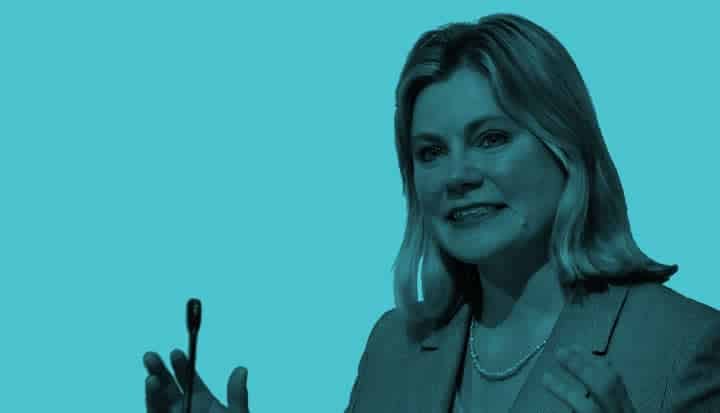Partnerships are vital if we are to make the greatest possible impact on development.
This is why the whole global community – governments, businesses, emerging and developing nations, civil society – needs to agree a new partnership to work together and unite behind the Post-2015 Sustainable Development Goals (SDGs) and work together to achieve them.
The only sustainable way to end poverty is through growth and jobs. In my role as UK co-chair of the Global Partnership for Effective Development Cooperation I championed the role of business as a partner in development because the private sector has a vital part to play.
The UK is working with others to ensure business and growth are central to the framework presently being negotiated as part of the new goals. Businesses are already making important contributions to the debate, of which this report is one, and companies are developing a manifesto for business for the post-2015 negotiations.
This report demonstrates that the private sector has a proven track record of working with a range of partners in governments, donors and civil society to deliver initiatives, such as in agriculture, health and water resource management, which are essential for employment and growth or providing innovative services and goods for poor people.
I have made economic development, with an emphasis on job creation and catalysing sustainable growth, a core priority right across the UK’s Department for International Development. The changes we are making to our focus and structure demonstrate a clear commitment to partnering more with business. There are a number of ways we are doing this.
For example, we are making it easier for entrepreneurs to set up and invest in business and create jobs. The ENABLE programme in Nigeria has supported business associations to advocate for tax reform, helping over 352,000 micro-enterprises in Lagos to pay a fair amount of tax, 148,000 of which are owned by women.
Companies which are moving into new frontier markets often need partners with patient capital to help share the risk of that investment. DFID is co-investing in activities that if successful will make profits but also deliver real improvements in poor people’s lives. In 2013 a $7.5 million loan through the Emerging Africa Infrastructure Fund to Helios Towers helped unlock private investments of $75 million to upgrade and expand their telecoms tower network in the Democratic Republic of Congo, providing access to mobile and associated services for 1.8 million customers.
We also partner with companies who are using their innovation and creativity to operate and compete in markets that are essential for growth and increased opportunities for the poor. The private sector – from the smallholder farmer in Africa to the largest multinational enterprise – has a part to play and we want to work together to help them realise their full potential. In Kenya, the Africa Enterprise Challenge Fund is partnering with Kisima Farm Limited to expand its production of disease-free seed potatoes and build the first cold storage unit in Kenya so seed is available throughout the year. These seed potatoes can increase yields by at least 50 per cent and increase income by $1,363 per acre compared to traditional seed varieties.
Finally, we need to make sure that growth benefits all, and that no one is left behind. We are working with responsible businesses to create decent jobs which are sustainable. The Private Enterprise Development Programme in Ethiopia is supporting access to finance for small and medium sized businesses, especially those owned and run by women, in the horticulture, leather and textiles sectors to raise incomes and create jobs.
We all have an interest in helping the economies of developing countries to grow faster. Although things cannot change overnight, with the right mix of partnerships and a commitment to work together, ideas can flourish, business environments improve, investors see a more attractive financial landscape and lasting development will take hold.











One Response
I have to comment on the following from the above post:
>>> The only sustainable way to end poverty is through growth and jobs. In my role as UK co-chair of the Global Partnership for Effective Development Cooperation I championed the role of business as a partner in development because the private sector has a vital part to play./p>
Putting ‘sustainable’ and ‘growth’ in the same sentence raises all sorts of questions. There is a view that ‘growth’ is not sustainable … and especially growth that is measured at the macro level, which is essentially the only place that growth does get measured.
The global economy has grown very fast and by a huge amount in the past 100 years, but the disappearance of poverty has not happened though poverty may have reduced somewhat. In this time the planet … resource depletion, environmental degradation, loss of bio-diversity … has become serious stressed.
Growth … that is a bigger economy, is not the answer. What is needed is a better economy, and the first step to making this happen is major improvement in the systems of metrics that are deployed. This short paper explains what a new 7D Capitalism might look like together with multi dimension impact accounting;
Short intoduction to 7D Capitalism and MDIA
Peter Burgess